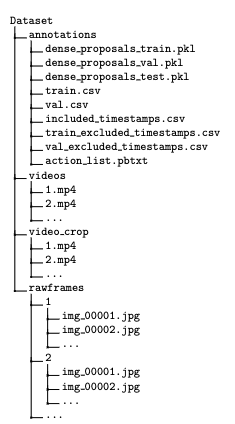我想检索请求失败的HTTP响应状态代码(例如400,401,403,503等)(最好是成功)。在此代码中,我使用HTTP Basic执行用户身份验证,并希望能够在用户输入密码错误时通知用户身份验证失败。
Alamofire.request(.GET,"https://host.com/a/path").authenticate(user: "user",password: "typo")
.responseString { (req,res,data,error) in
if error != nil {
println("STRING Error:: error:\(error)")
println(" req:\(req)")
println(" res:\(res)")
println(" data:\(data)")
return
}
println("SUCCESS for String")
}
.responseJSON { (req,error) in
if error != nil {
println("JSON Error:: error:\(error)")
println(" req:\(req)")
println(" res:\(res)")
println(" data:\(data)")
return
}
println("SUCCESS for JSON")
}
不幸的是,产生的错误似乎并不表示实际接收到HTTP状态代码409:
STRING Error:: error:Optional(Error Domain=NSURLErrorDomain Code=-999 "cancelled" UserInfo=0x7f9beb8efce0 {NSErrorFailingURLKey=https://host.com/a/path,NSLocalizedDescription=cancelled,NSErrorFailingURLStringKey=https://host.com/a/path})
req:<NSMutableuRLRequest: 0x7f9beb89d5e0> { URL: https://host.com/a/path }
res:nil
data:Optional("")
JSON Error:: error:Optional(Error Domain=NSURLErrorDomain Code=-999 "cancelled" UserInfo=0x7f9beb8efce0 {NSErrorFailingURLKey=https://host.com/a/path,NSErrorFailingURLStringKey=https://host.com/a/path})
req:<NSMutableuRLRequest: 0x7f9beb89d5e0> { URL: https://host.com/a/path }
res:nil
data:nil
另外,当发生错误时检索HTTP主体是很好的,因为我的服务器端会在那里放置一个错误的文本描述。
问题
是否可以在非2xx响应时检索状态代码?
是否可以在2xx响应时检索特定的状态代码?
是否可以在非2xx响应时检索HTTP主体?
谢谢!
对于Alamofire> = 4.0的Swift 3.x用户
Alamofire.request(urlString)
.responseString { response in
print("Success: \(response.result.isSuccess)")
print("Response String: \(response.result.value)")
var statusCode = response.response?.statusCode
if let error = response.result.error as? AFError {
statusCode = error._code // statusCode private
switch error {
case .invalidURL(let url):
print("Invalid URL: \(url) - \(error.localizedDescription)")
case .parameterEncodingFailed(let reason):
print("Parameter encoding Failed: \(error.localizedDescription)")
print("Failure Reason: \(reason)")
case .multipartEncodingFailed(let reason):
print("Multipart encoding Failed: \(error.localizedDescription)")
print("Failure Reason: \(reason)")
case .responseValidationFailed(let reason):
print("Response validation Failed: \(error.localizedDescription)")
print("Failure Reason: \(reason)")
switch reason {
case .dataFileNil,.dataFileReadFailed:
print("Downloaded file Could not be read")
case .missingContentType(let acceptableContentTypes):
print("Content Type Missing: \(acceptableContentTypes)")
case .unacceptableContentType(let acceptableContentTypes,let responseContentType):
print("Response content type: \(responseContentType) was unacceptable: \(acceptableContentTypes)")
case .unacceptableStatusCode(let code):
print("Response status code was unacceptable: \(code)")
statusCode = code
}
case .responseSerializationFailed(let reason):
print("Response serialization Failed: \(error.localizedDescription)")
print("Failure Reason: \(reason)")
// statusCode = 3840 ???? maybe..
}
print("Underlying error: \(error.underlyingError)")
} else if let error = response.result.error as? URLError {
print("URLError occurred: \(error)")
} else {
print("UnkNown error: \(response.result.error)")
}
print(statusCode) // the status code
}
(Alamofire 4包含一个全新的错误系统,查看here的详细信息)
对于Alamofire> = 3.0的Swift 2.x用户
Alamofire.request(.GET,urlString)
.responseString { response in
print("Success: \(response.result.isSuccess)")
print("Response String: \(response.result.value)")
if let alamoError = response.result.error {
let alamoCode = alamoError.code
let statusCode = (response.response?.statusCode)!
} else { //no errors
let statusCode = (response.response?.statusCode)! //example : 200
}
}






